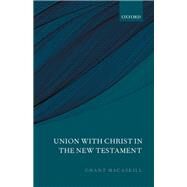Union with Christ in the New Testament
, by Macaskill, Grant- ISBN: 9780199684298 | 0199684294
- Cover: Hardcover
- Copyright: 1/7/2014
This book is a study of the union between God and those he has redeemed, as it is represented in the New Testament. In conversation with historical and systematic theology, Grant Macaskill argues that the union between God and his people is consistently represented by the New Testament authors as covenantal, with the participation of believers in the life of God specifically mediated by Jesus, the covenant Messiah: hence, it involves union with Christ. Christ's mediation of divine presence is grounded in the ontology of the Incarnation, the real divinity and real humanity of his person, and by the full divine personhood of the Holy Spirit, who unites believers to him in faith. His personal narrative of death and resurrection is understood in relation to the covenant by which God's dealings with humanity are ordered. In their union with him, believers are transformed both morally and noetically, so that the union has an epistemic dimension, strongly affirmed by the theological tradition but sometimes confused by scholars with Platonism.
This account is developed in close engagement with the New Testament texts, read against Jewish backgrounds, and allowed to inform one another as context. As a "participatory" understanding of New Testament soteriology, it is advanced in distinction to other participatory approaches that are here considered to be deficient, particularly the so-called "apocalyptic" approach that is popular in Pauline scholarship, and those attempts to read New Testament soteriology in terms of theosis, elements of which are nevertheless affirmed.
This account is developed in close engagement with the New Testament texts, read against Jewish backgrounds, and allowed to inform one another as context. As a "participatory" understanding of New Testament soteriology, it is advanced in distinction to other participatory approaches that are here considered to be deficient, particularly the so-called "apocalyptic" approach that is popular in Pauline scholarship, and those attempts to read New Testament soteriology in terms of theosis, elements of which are nevertheless affirmed.







